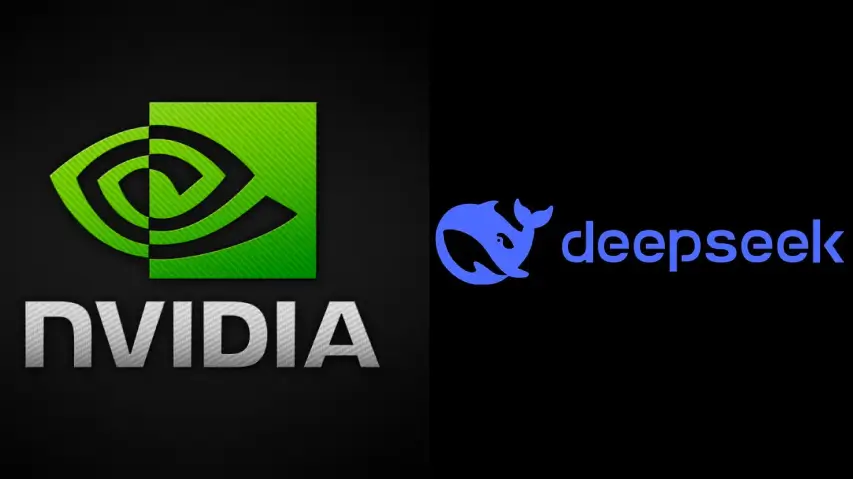
AI Landscape Shifts: DeepSeek’s Breakthrough Challenges Nvidia’s Dominance
The artificial intelligence (AI) world is abuzz with the arrival of DeepSeek, a Chinese AI startup that’s making waves with its groundbreaking R1 model. Released last Friday, R1 has demonstrated remarkable functionality and accuracy, rivaling its U.S. counterparts while utilizing significantly fewer resources and less computing power. While this marks a significant advancement for the AI industry as a whole, it’s casting a shadow over semiconductor giant Nvidia.
Nvidia’s Stock Takes a $600 Billion Hit
Nvidia, a leading producer of the high-powered chips that fuel many AI models, has felt the immediate impact of DeepSeek’s achievement. According to Yahoo Finance, Nvidia’s stock plummeted by a staggering 16.9% between Friday’s and Monday’s market close, resulting in a loss of nearly $600 billion from its market capitalization. The stock, which closed at $142.62 per share on Friday, dipped to $118.58 by Monday’s close.
Why is DeepSeek’s R1 Model Shaking Up the Market?
The core of the issue lies in what DeepSeek’s R1 represents: a clear demonstration that impressive AI models can be built without relying on the most expensive, high-end chips and hardware. This is a potential threat to Nvidia’s business model, which thrives on the demand for its powerful (and costly) GPUs.
Nvidia Responds: Emphasizing Inference and “Test Time Scaling”
Nvidia, while acknowledging DeepSeek’s advancements, is highlighting the importance of “Test Time Scaling.” An Nvidia spokesperson explained to TechCrunch that DeepSeek’s work exemplifies how new models can leverage existing resources and export-compliant computing power. However, they stressed that inference (the process of using a trained AI model to make predictions) still requires significant GPU power and high-performance networking – areas where Nvidia excels.
Geopolitical Tensions and the AI Arms Race
The timing of DeepSeek’s release adds another layer of complexity. It comes on the heels of recent political actions impacting the AI chip industry:
- Biden’s Export Restrictions: Former President Biden signed an executive order restricting the export of advanced U.S.-made AI chips, particularly to China, where DeepSeek is based. Nvidia criticized this move as “unprecedented and misguided,” warning it would hinder innovation and economic growth.
- Policy Shift: The recent administration has since reversed the previous executive order and signed a new one to create the “Stargate Project”. This is an infrastructure program that will invest up to $500 billion into AI data centers.
The Bigger Picture: Beyond Chips and Hardware
DeepSeek’s emergence underscores a crucial point: the race for global AI dominance is about more than just hardware. While powerful chips are essential, efficient model development, resource optimization, and algorithmic innovation are becoming increasingly important.
What’s Next for Nvidia and the AI Industry?
The coming months will be crucial in determining how Nvidia adapts to this evolving landscape. Will they double down on their existing strengths or diversify into new areas of AI development? One thing is certain: the rise of companies like DeepSeek is a wake-up call, signaling that the AI revolution is far from over and that competition will only intensify.
Key Takeaways:
- DeepSeek’s R1 model demonstrates that powerful AI doesn’t always require the most expensive hardware.
- Nvidia’s stock drop reflects investor concerns about the potential impact on their core business.
- The global AI landscape is shifting, with a growing emphasis on efficiency and algorithmic innovation.
- The recent political changes will likely have a significant impact on the development and deployment of AI technologies.
Stay informed about the latest developments in AI by subscribing to NewsIQ’s newsletter. Share your thoughts on the future of AI in the comments below.



